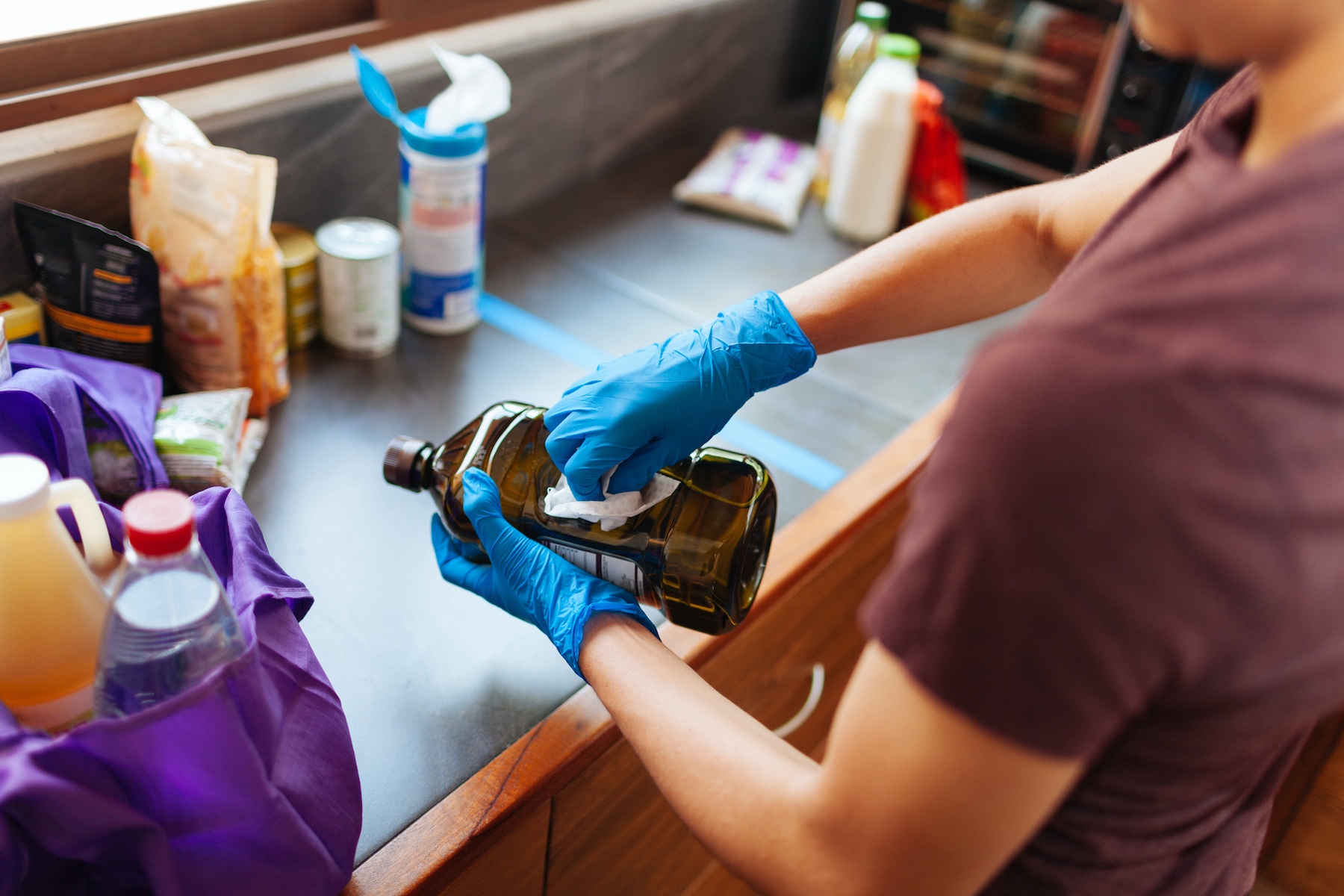Each week, OMRF President Dr. Stephen Prescott opens “Adam’s Journal” to answer a medical question from OMRF Senior Vice President and General Counsel Adam Cohen.
Adam’s Journal
At the outset of the pandemic, there was a great deal of concern about the coronavirus lingering on surfaces. As a result, I got in the habit of wiping down my groceries and letting packages and mail sit before opening them.
I no longer use any sort of waiting period with packages and mail, though I still wash my hands after opening. But what about groceries? Do I still need to wipe them down once I bring them home?
Dr. Prescott Prescribes
While research studies continue to demonstrate that SARS-CoV-2 can survive on surfaces for days and even weeks, the scientific consensus is now that surface contamination isn’t a primary mode of infection.
Overwhelming evidence points to airborne transmission as the source of the vast majority of case transmissions. With fall and winter driving us all indoors, this is the principal risk we should concern ourselves with.
It’s true that under laboratory conditions, scientists have found coronavirus particles can linger for frighteningly long periods of time. A study published earlier this month found that traces remained on surfaces such as glass and stainless steel for up to 28 days.
Still, as alarming as this may sound, it shouldn’t cause great concern.
First, in the real world, sunlight, heat and airflow will all act quickly to weaken or destroy the virus. And there’s a big difference between a few viral particles surviving on a surface and introducing enough SARS-CoV-2 into your mucus membrane to infect you.
We don’t know – and probably never will – the precise number of viral particles necessary to seed an infection. But the evidence points to an amount much greater than we’d pick up from grabbing a box of cereal or other groceries.
We’ve seen little evidence of infection through surface transmission. It doesn’t mean it hasn’t happened, but if it has, it’s been the exception rather than the rule.
Washing your hands after going to the store (or touching pretty much anything these days) is a good practice. Same with keeping your hands away from your face, physical distancing and wearing a mask. But there’s no need to keep wiping down your groceries.



